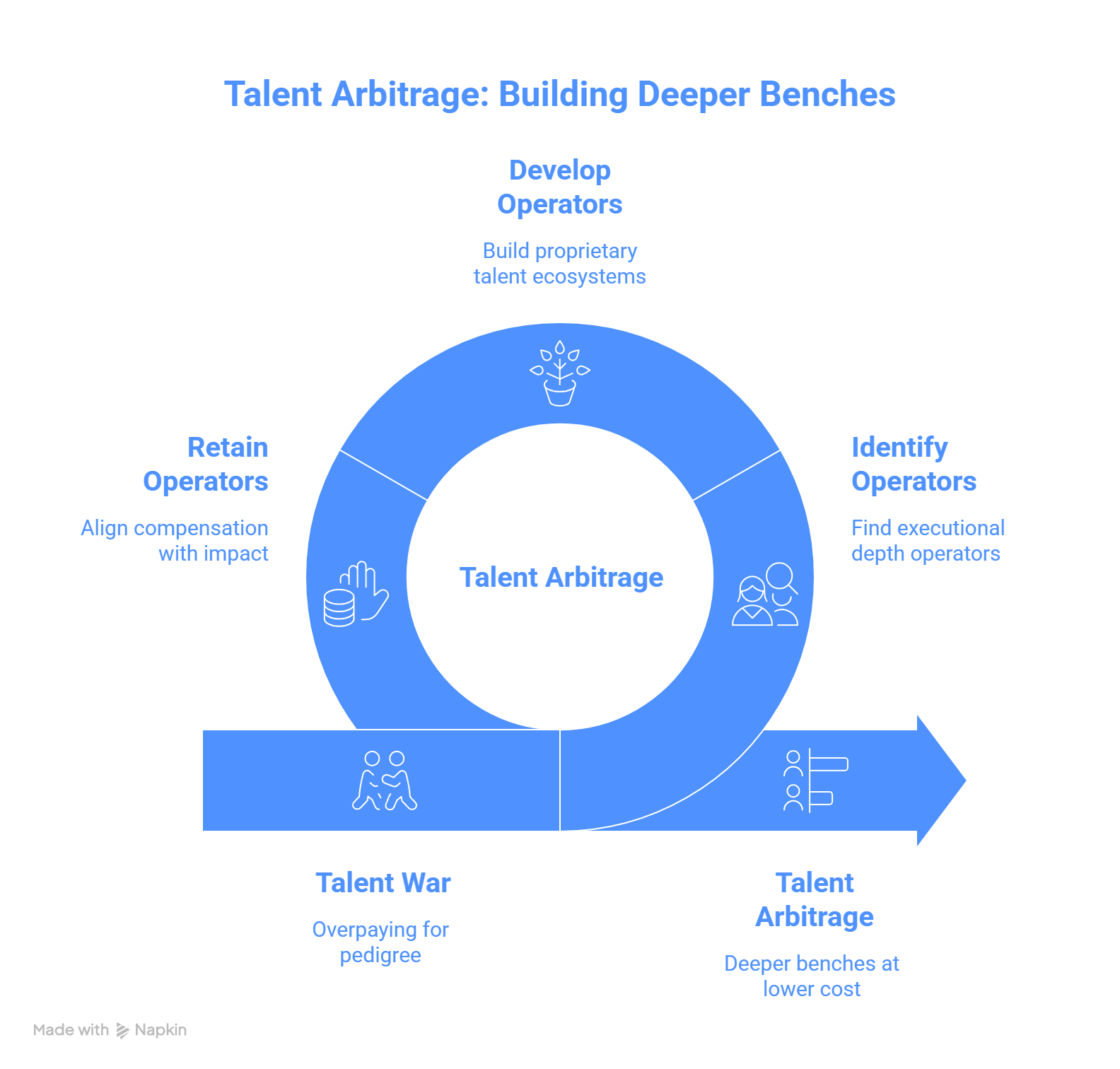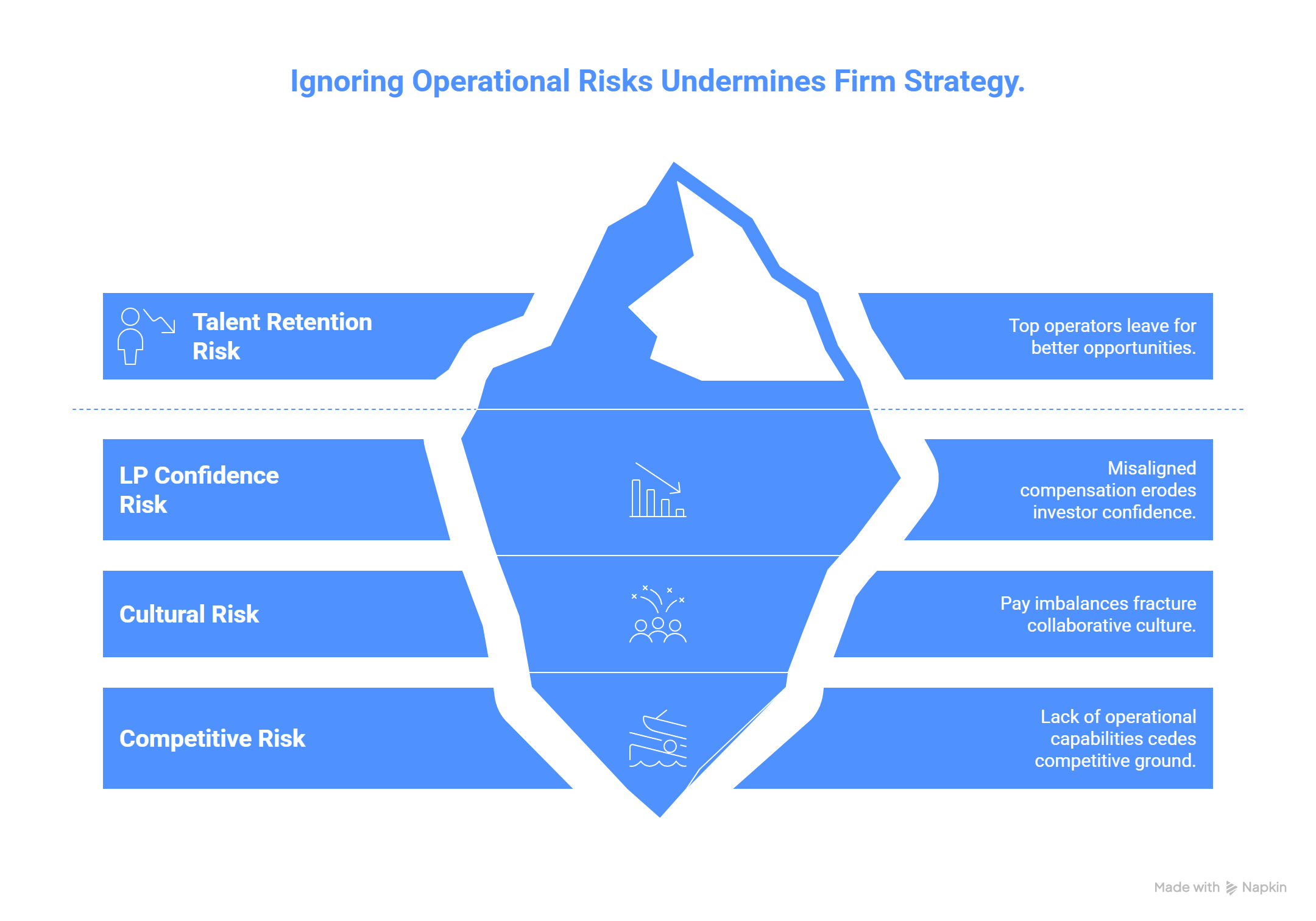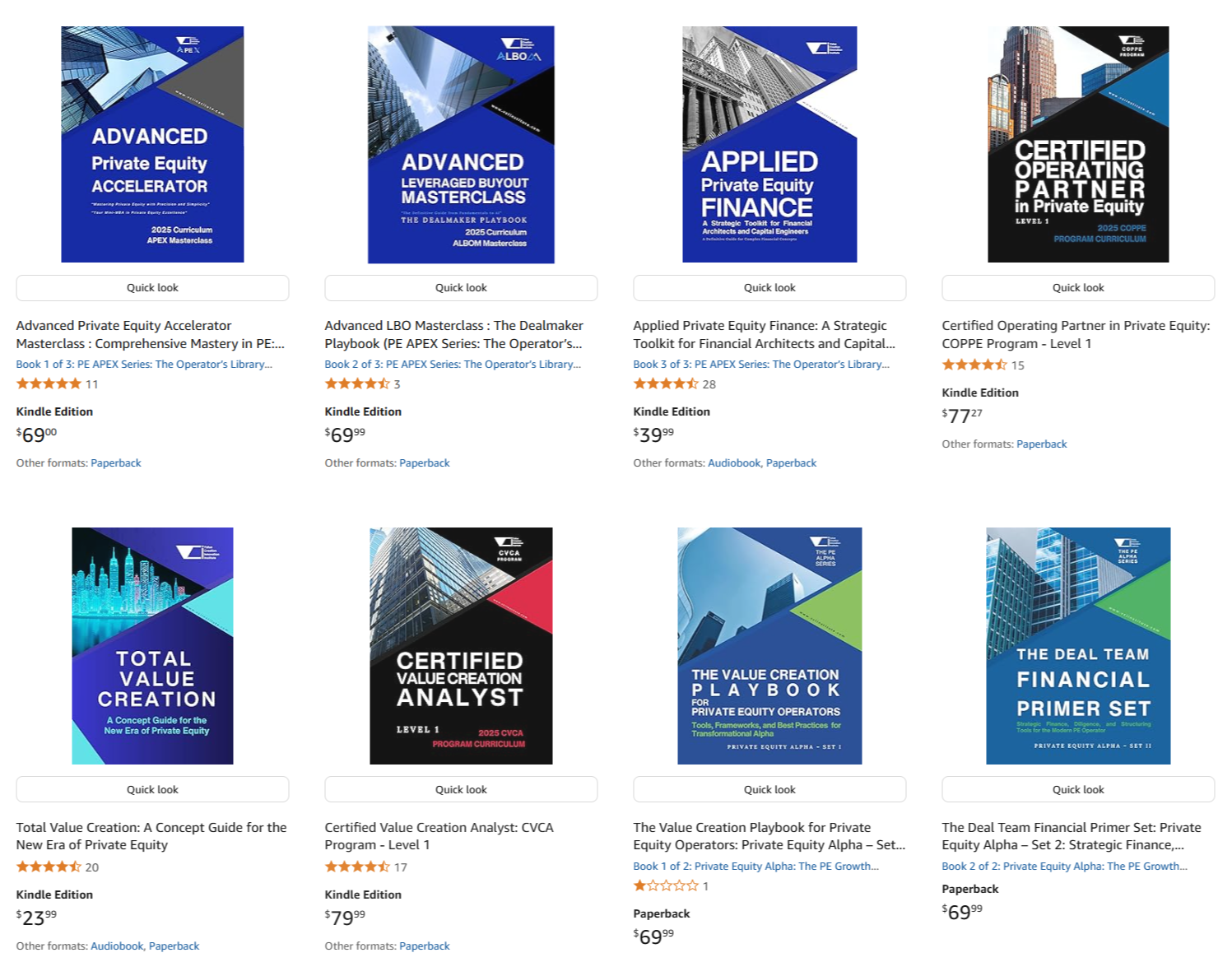The $6 Trillion Blind Spot: Why Private Equity's Talent Strategy Is Undermining Its Investment Strategy
Oct 31, 2025
Private equity stands at a critical inflection point. The playbook that reliably delivered outsized returns: financial engineering, multiple arbitrage, aggressive leverage, etc. The Playbook faces mounting pressure. With elevated interest rates and compressed exit multiples, operational value creation has become the defining competitive edge.
Yet the industry systematically undercuts its own operating model. At the heart of this contradiction: a $6 trillion blind spot in how firms source, compensate, and retain operating partner talent.
This isn't an HR problem. It's a strategic liability threatening the credibility of value creation as an investment thesis, the retention of top-tier operators, and the sustainability of private equity returns over the next decade.
Operating Partners Now Drive Nearly Half of Returns—But Remain Second-Class Citizens
Operating partners contribute an estimated 47% of total returns in buyout transactions today—a dramatic shift from historical norms. Yet their compensation lags 30% to 50% behind deal professionals at equivalent seniority. The gap extends beyond base salary to meaningful carry, with many firms excluding operations leads from the economics of the deals they help deliver.
The signal this sends: operators may generate half the value, but they remain second-tier within firm hierarchies.
Elizabeth Pietrzak frames the dilemma sharply: "Until the check written to operations reflects the 47% returns they drive, firms are essentially prioritizing the paper over the performance engine."
Limited partners notice. Compensation misalignment reveals whether value creation is institutionalized and repeatable—or marketing language layered over a transactional core.
The Talent Shortage Is a Design Flaw, Not a Market Problem
Beyond compensation, private equity faces acute scarcity of proven operating talent. The traditional pipeline—management consulting and corporate transformation roles—cannot meet demand. PE-backed platforms require more hands-on execution than ever, yet firms continue sourcing from the same shallow talent pool.
The result? A 3x to 10x gap between supply and demand, with time-to-fill stretching beyond 180 days and bidding wars inflating compensation packages beyond rational levels.
This isn't a capacity constraint. It's a structural design flaw.
According to Rob Bacher: "Firms are playing musical chairs while the next generation of operators is compounding value in the shadows."

The Shift from Talent War to Talent Arbitrage
The most sophisticated firms no longer participate in traditional talent wars. They engage in talent arbitrage.
Rather than overpaying for pedigree, they build proprietary ecosystems identifying, developing, and retaining operators with genuine executional depth—regardless of background. These operators emerge from:
- Big Four transformation practices
- Global BPO and shared services organizations
- Corporate development teams
- Functional leaders from portfolio companies who've delivered under pressure
As Bacher observes: "This isn't a talent war. It's a talent arbitrage. And the clock's ticking."
By sourcing from non-obvious channels and aligning compensation with delivered impact, these firms build deeper benches at lower cost—and outperform peers by 2 to 3 points of IRR.

The Strategic Risks Cascade Across Every Layer
The consequences of ignoring this blind spot cascade through firm strategy:
Talent Retention Risk: Top operators increasingly join firms that recognize their worth—or launch their own funds.
LP Confidence Risk: Misaligned compensation signals value creation is superficial or unscalable, eroding investor confidence in operational capabilities.
Cultural Risk: Pay and power imbalances fracture the collaborative culture required for execution at portfolio companies.
Competitive Risk: In the operational era, talent strategy and investment strategy are inseparable. Firms that fail to institutionalize operating capabilities cede competitive ground.
Nathan McGraw states it plainly: "Treating ops as second-class doesn't just create retention risk—it undermines the very thesis LPs are buying into."
The Mandate for Modern Private Equity
The conclusion is urgent and actionable. In a market where financial engineering alone no longer suffices, firms must build institutional strength around operating talent.
That requires:
Reengineering compensation models to reflect contribution, not credentials. Operators who deliver 47% of returns deserve economics that reflect that reality.
Building alternative sourcing pipelines that reward execution over brand-name pedigree. The best operators often emerge from unconventional backgrounds.
Institutionalizing operator development with clear progression pathways and internal mobility that recognizes value creation expertise.
Elevating operations to investment committee status, making operational capability core to investment decisions rather than an auxiliary function.
The firms winning in the next decade won't outspend competitors on deal sourcing. They'll out-execute on value creation. And execution begins with people.
The Bottom Line: Talent Strategy Is Investment Strategy
Private equity's success has always depended on seeing what others miss.
Now, that blind spot is internal.
Unless firms evolve how they source, empower, and compensate operating talent, they risk undermining not just margins—but their entire value proposition.
Firms that respond with urgency and intentional design will build an edge capital cannot replicate. Those who delay may find the operating partners they undervalued today become the competitive firms they cannot beat tomorrow.
The Value Creation Innovation Institute (VCII) equips private equity professionals with operator-grade frameworks and practical tools to drive performance across portfolio companies. From the Certified Operating Partner in PE (COPPE) program to our comprehensive Free Library of templates and playbooks, VCII supports the next generation of value creation leaders.
Ready to build your operating capabilities? Explore our courses, access the Free Library, or take the Self-Assessment to identify your next development priorities.
Credit: Tracy Wong
We have many great affordable courses waiting for you!
Stay connected with news and updates!
Join our mailing list to receive the latest news and updates from our team.
Don't worry, your information will not be shared.
We hate SPAM. We will never sell your information, for any reason.


